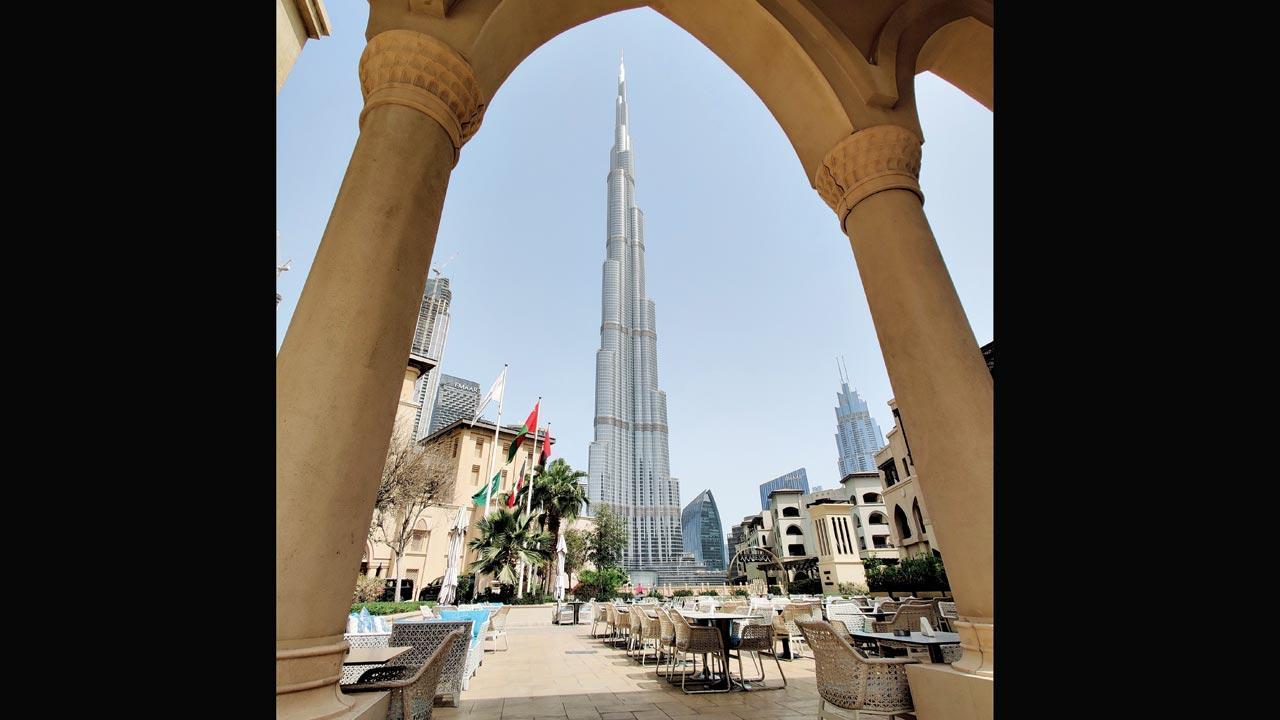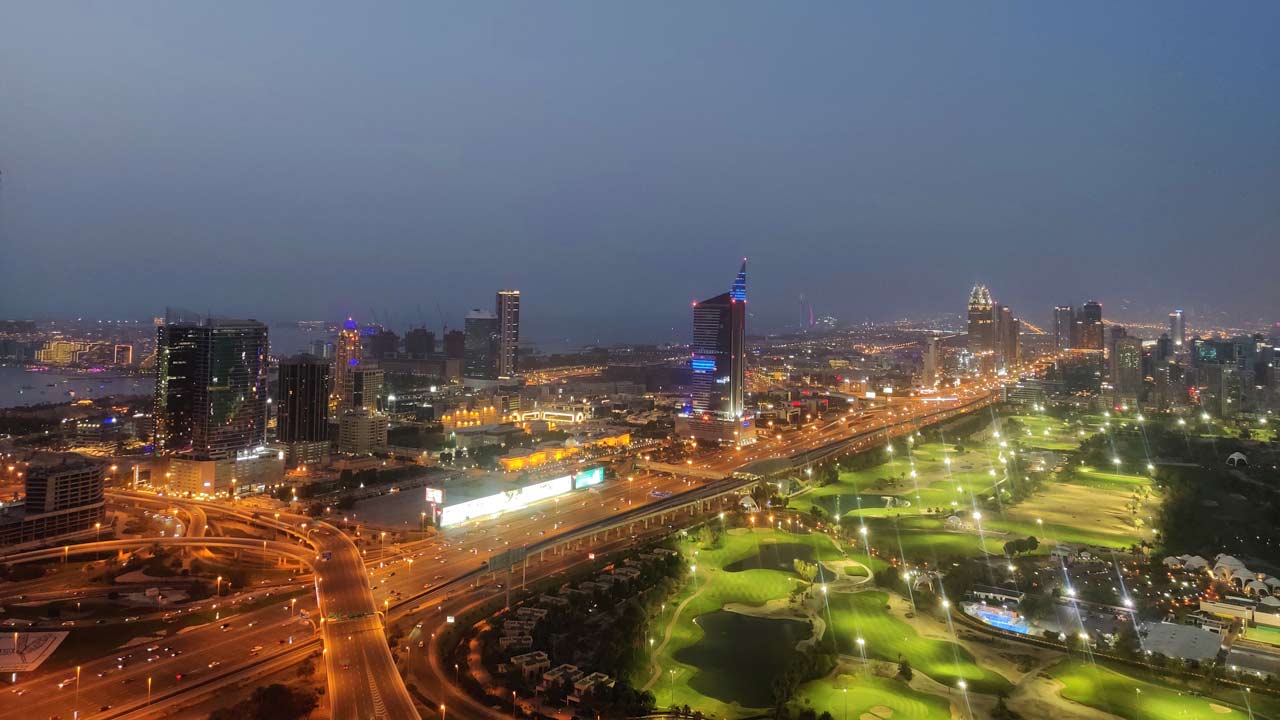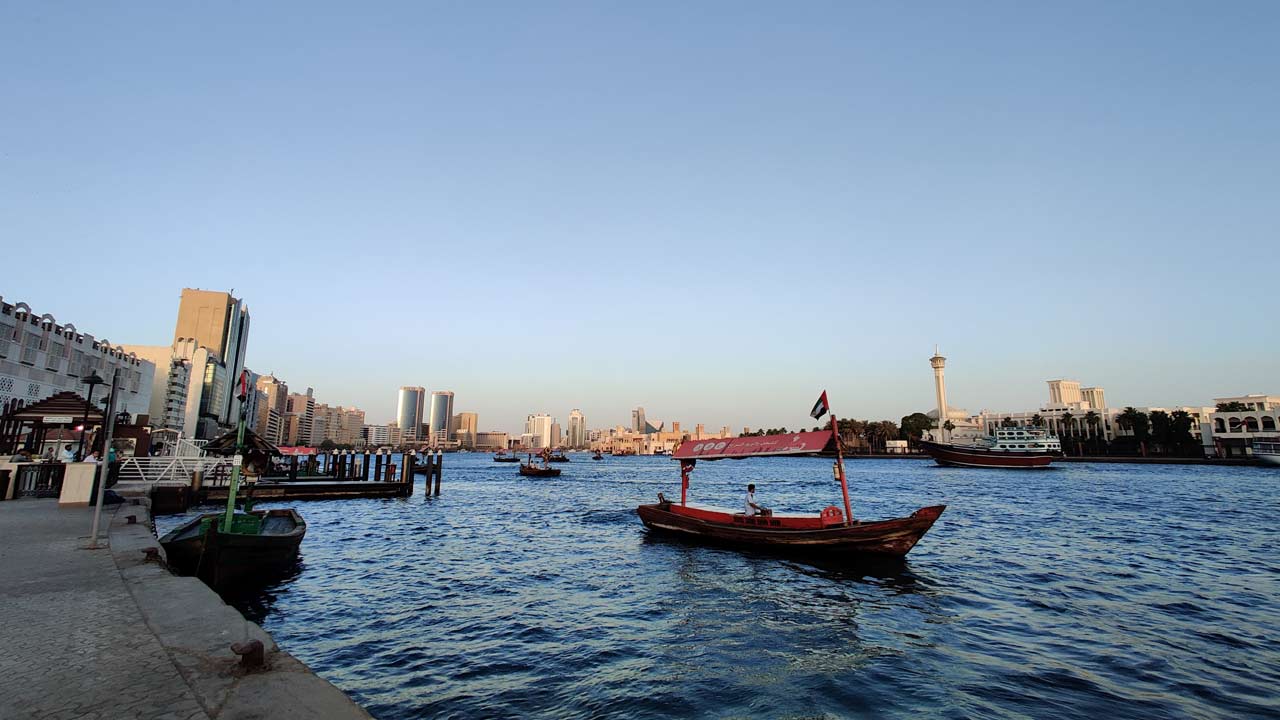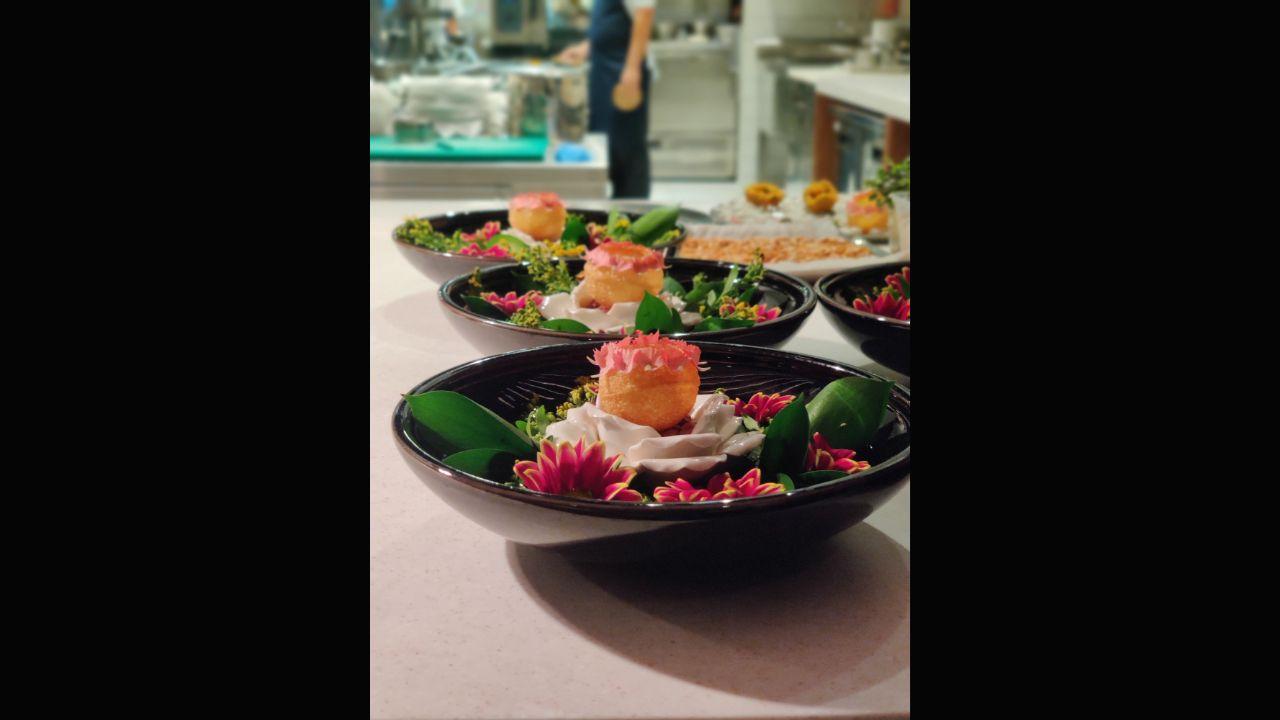Behind the emirate’s towering cityscape are millions of expats who call the megalopolis home. Traipsing around the Dubai Food Festival, mid-day discovers how this multicultural identity flavours its culinary landscape

The Burj Khalifa
Your neck’s likely to hurt if you’re a wide-eyed first-timer in Dubai. Forget the Burj Khalifa (2,717 ft); malls and offices, even supermarkets, have their heads buried in the clouds. As we struggle to fit the tip of the Khalifa in a frame, Kishore, who has been driving us around the city, reveals that the tallest tower in the world came up as recently as 2009. In fact, much of the glittering New York-meets-Hong Kong cityscape has mushroomed in the last few decades, spurred by the discovery of oil, a real estate boom, ease of doing business, trade and tourism.
Guarding these swanky skyscrapers, shepherding tourists around town, leading strategy in boardrooms, and building the city brick by brick are expats, like Kishore from Kerala. From Kenya to The Philippines, and UK to Iran, expats comprise about 85 per cent of Dubai’s population. Whether it’s jazzy Downtown Dubai or the historical Al Fahidi, this multiculturalism follows us around — in a chatty bonhomie with a Tamilian cabbie, while bargaining with a Pakistani souvenir vendor, and in our Georgian tour guide’s stories.
The Dubai Food Festival (DFF) is in full swing when we visit, beating the May heat with masterclasses, set gourmet menus and chef’s tables. Since 2014, the 14-day annual celebration has been shining a light on Dubai’s kitchens — the award-winning restaurants, the indie concepts, and the hole-in-the-wall gems. For five days, we put on our eating pants, camp under the stars for a Mediterranean meal, fail miserably at rolling sushi, zoom past roadside neon signs advertising Hyderabadi biryani, and turn our itinerary upside down to find an Iranian kebab joint. There are cuisines from over 200 nationalities to be discovered; we barely scratch the surface of the melting pot.

Bubbling along the Berdawni
_e.jpg)
From sprawling food courts to fancy fine-dines, Lebanese food is ubiquitous in Dubai. But at the Al Nafoorah, in the palatial Jumeirah Al Qasr resort, baba ganoush, shawarma and kibbeh are served with a side of Arabian Nights aesthetic. Think sparkling stars and half-moons dangling from a giant olive tree, which we soak in while tucking into Lebanese native, chef Ali Fouad’s fluffy pitas dunked in a smoky, spicy moutabel (grilled eggplants), and a tangy grilled summan fish drenched in a spiced tomato sauce.

A view of the Dubai creek
The restaurant overlooks a turquoise stream — inspired by the Berdawni Riviera, the city of wine and poetry — that whisks guests away. Our three-course lunch (AED 125) buys us a comforting array of hot and cold mezzehs; mixed grill, filo pastry and fish among the mains; and desserts.
In the art of Europe
_e.jpg)
In the sombre heart of Dubai International Financial Centre — we are reminded of BKC — Mina Brasserie stirs in a dash of blue. The modern European restaurant, helmed by award-winning American chef Michael Mina, pays homage to his Egyptian roots, while fusing Arab and French influences. As a hat-tip to the galleries in the area, the resto bar has re-imagined 13 works of art—yes, not without Starry Night by Van Gogh and Melting Watch by Salvador Dali—as cocktails (AED 70 onwards). Our alcohol-meets-art dreams are realised when an ink-blue Prosecco-based Starry Night is served, along with the pretty Girl With The Pearl Earring. We pair these with a host of dishes, but the simple, flavour-packed tuna tartare (120 AED), a wholesome lobster pot pie (310 AED) and the lemon (60 AED) stuffed with a light-as-air lemon cream stay with us.
Desi drama
 Wood-apple pani puri at Tresind Studio. Pics/Sukanya Datta
Wood-apple pani puri at Tresind Studio. Pics/Sukanya Datta
Indian food — Malabari, Maharashtrian, Punjabi, even Bengali — is inescapable in Dubai. But desi flavours find a different stage at Indian chef Himanshu Saini’s Trèsind Studio, where design and drama meet a 17-course degustation menu (AED 595). Leave your inhibitions behind, because you’re part of the theatrics. It’s where a panipuri martini opens the act for a sweet and smoky wood-apple pani puri; where, we’re encouraged to bite into a padrón pepper and slurp buttermilk curry ice-cream together; and where, the lights go out with Frank Sinatra crooning Fly me to the moon as you nibble on cacao hives glowing on celestial lamps. Saini’s culinary script has more hits than misses, but what wins us over is the way his crew eases us into this adventurous rediscovery of familiar flavours. Oh, and you’re allowed an interval; we recommend taking a walk around the bountiful kitchen garden.
Vietnam to Portugal via Dubai
_e.jpg)
Nestled in the regal Souk Al Bahar—we lingered on to capture the kaleidoscopic cut-glass chandeliers—Time Out Market Dubai is a shortcut to experiencing some of the city’s best culinary talent. From Portuguese francesinhas at Lana Lusa, breakfast pho at Vietnamese Foodies, and uramaki at Reif Japanese Kushiyaki to polpo alla brace at Fulvio’s, artisanal smoked meats at Mattar, 21 dining experiences (average prices range from AED 40 AED to 85) curated by the magazine’s editorial team are an ode to the medley of cultures in Dubai. Don’t miss the light-as-air lemongrass crème brûlée at The Light House, and the silky salmon cream cheese toast at Boon Coffee.
Ticket to Iran
_e.jpg)
We’ve saved the best for the last. Shah Rukh Khan and Sanjay Dutt are self-confessed fans of this Iranian joint occupying pride of place in the old quarters. But Al Ustad Special Kebab or Ostadi needs no celebrity endorsement. The love that late founder Haji Mohammad Ali Ansari’s yoghurt mutton kebabs, khorak sultani and joujeh kebabs have earned has turned the restaurant into a mini museum of memories. Photographs, old cell phones, currency notes and keepsakes left behind by diners cover every inch of the walls. Like the quirky décor, animated one-liners by the founder’s son, Majeed Al Ansari — trotting around, mixing saffron rice, or chatting up diners—keep us company.
_e.jpg) Kebabs at Al Ustad
Kebabs at Al Ustad
“My father was seven when he came to Dubai with my grandfather from Iran. He used to trade with the Iran government, but then the war happened. He started this restaurant in 1978; you know, when god closes one door, he opens another,” Ansari Junior regales us as we tuck into the juicy but puckery kebab khas—their bestseller.
_e.jpg)
“When Arabs and Iranians get married, they barbecue the chicken and yoghurt kebabs. But Indians and Pakistanis, they don’t like the sour!” he cautions us. With prices ranging from AED 35 to 47, Ostadi serves up pocket-friendly Persian meals, following recipes that Ansari and his wife immortalised. The Ansaris’ magic mantra for their 44-year-old success: “One god, one wife, one shop!” Alhamdulillah.
Want to hear from you
We are looking to visit and write about interesting places of stay and travel, near and far. If you wish to host us for a fair, engaging experience review, write to us at smdmail@mid-day.com
 Subscribe today by clicking the link and stay updated with the latest news!" Click here!
Subscribe today by clicking the link and stay updated with the latest news!" Click here!








